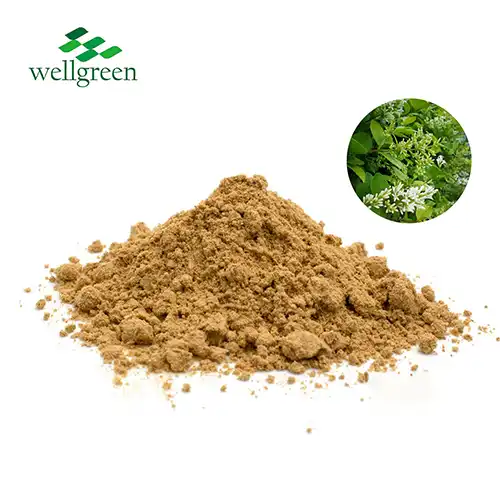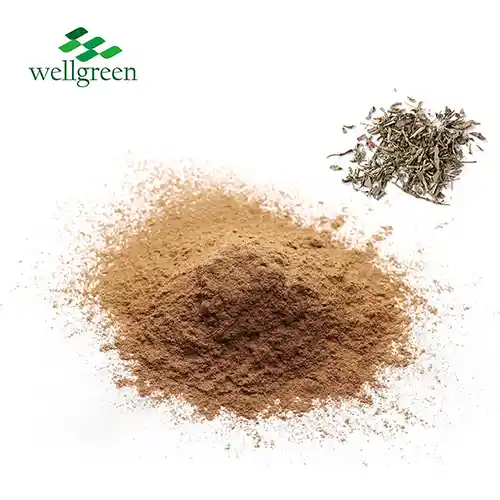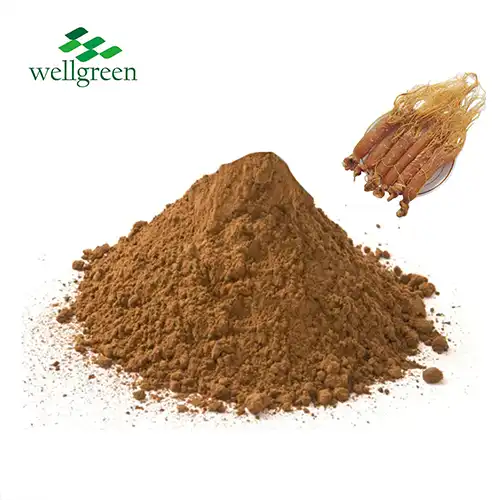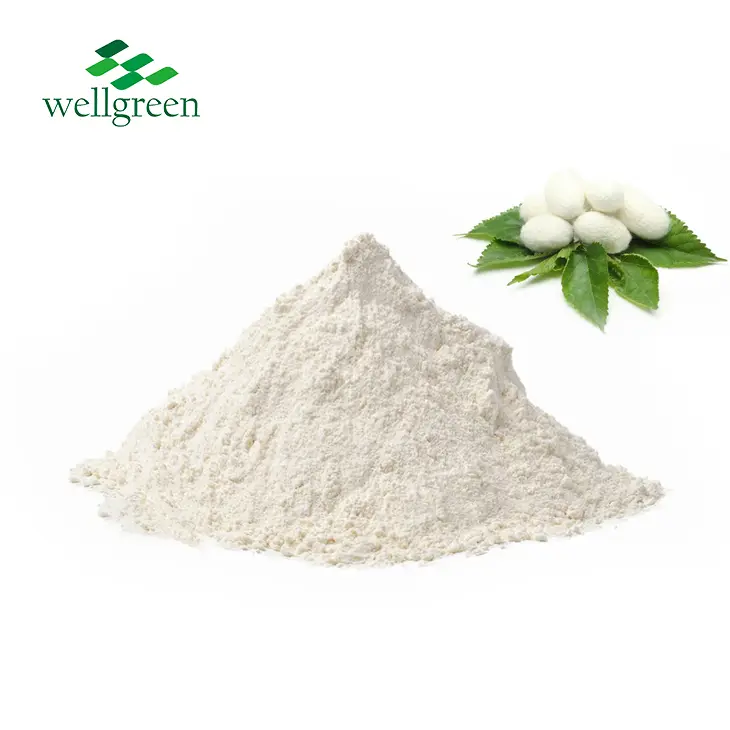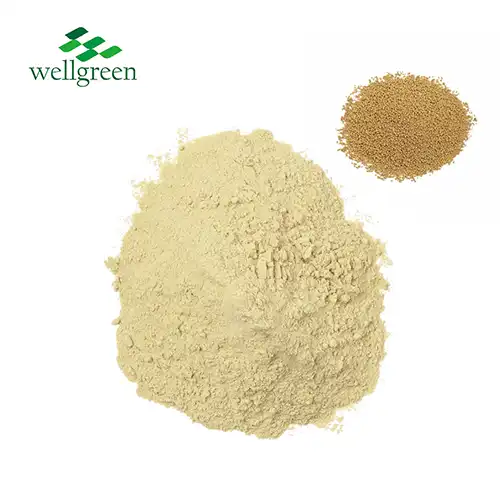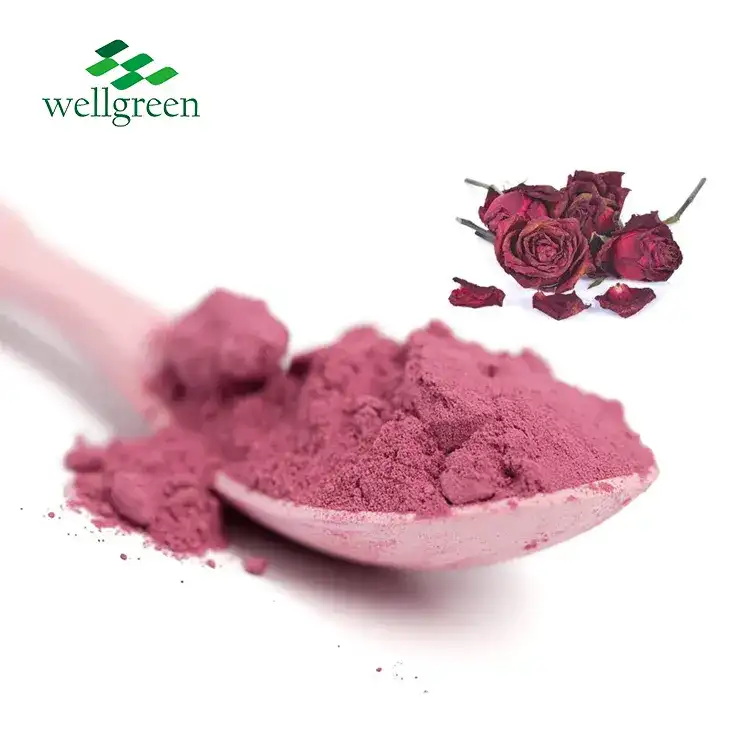What is pluchea indica used for?
2024-07-01 11:08:43
Introduction: Exploring the Uses of Pluchea Indica
Pluchea indica, commonly known as Indian camphorweed or Marsh Fleabane, is a plant native to Southeast Asia and other tropical regions. It has a long history of use in traditional medicine for its purported health benefits. The Pluchea indica extract has been utilized for various medicinal purposes, thanks to its rich phytochemical composition. This article delves into the uses of Pluchea indica, examining its medicinal properties, benefits for digestive health, and potential side effects.
What Are the Medicinal Properties of Pluchea Indica Extract?
For centuries, Pluchea indica has been used as a mainstay in traditional medicine because of its numerous health benefits. The plant's concentrate is wealthy in bioactive mixtures, including flavonoids, terpenoids, and phenolic acids, which add to its restorative impacts.
 One of the essential restorative properties of Pluchea indica extricate is its calming movement. Although chronic inflammation can result in a variety of health issues, including arthritis, cardiovascular diseases, and some cancers, it is a natural response to injury or infection.
One of the essential restorative properties of Pluchea indica extricate is its calming movement. Although chronic inflammation can result in a variety of health issues, including arthritis, cardiovascular diseases, and some cancers, it is a natural response to injury or infection.
Pluchea indica extract is a useful natural remedy for inflammatory conditions because studies have demonstrated that it can significantly reduce inflammation. The presence of flavonoids and phenolic acids, which inhibit the production of pro-inflammatory cytokines and enzymes, is largely responsible for the anti-inflammatory effects.
Cell reinforcement properties are one more key part of Pluchea indica remove. Free radicals, unstable molecules that have the potential to harm cells and contribute to aging and diseases like cancer, are neutralized by antioxidants. The extract of Pluchea indica has a lot of antioxidants, which protect cells from oxidative stress and help with overall health and well-being. This makes it especially valuable for skin wellbeing, as oxidative pressure is a significant supporter of skin maturing and harm.
Moreover, Pluchea indica extricate shows antimicrobial properties, making it successful against different bacterial and parasitic diseases. This is especially significant in light of the growing problem of antibiotic resistance because natural antimicrobials like Pluchea indica provide other options for controlling infections. Numerous studies have demonstrated the extract's effectiveness against pathogens like Staphylococcus aureus and Candida albicans, highlighting its potential as a natural antimicrobial.
Pluchea indica extract's analgesic, or pain-relieving, properties are also noteworthy. Natural analgesics like Pluchea indica can relieve pain without the side effects of synthetic medications, which is important for many medical treatments. The concentrate works by balancing torment pathways and lessening the view of agony, which can be especially advantageous for conditions like joint inflammation and muscle torment.
Notwithstanding these properties, Pluchea indica extricate has been investigated for its true capacity in overseeing diabetes. Fundamental exploration recommends that the concentrate can assist with directing glucose levels and further develop insulin responsiveness, making it a promising normal solution for diabetes the board. The presence of certain flavonoids and terpenoids that enhance insulin secretion and action is thought to be the cause of the hypoglycemic effects.
Generally speaking, the restorative properties of Pluchea indica extricate are broad and various, enveloping mitigating, cell reinforcement, antimicrobial, pain relieving, and antidiabetic impacts. These properties support its conventional use in different societies and feature its true capacity as a characteristic solution for a scope of medical problems.
How Does Pluchea Indica Extract Benefit Digestive Health?
Pluchea indica remove is especially prestigious for its advantages to stomach related wellbeing. This plant has been used for years in traditional medicine to treat a variety of gastrointestinal issues, and more recent research is beginning to support these claims.
The anti-inflammatory properties of Pluchea indica extract are one of the primary ways that it improves digestive health. Fiery gut sicknesses (IBD) like Crohn's illness and ulcerative colitis are portrayed by ongoing irritation of the gastrointestinal system. Symptoms like pain, diarrhea, and intestinal bleeding can be alleviated with the help of pluchea indica extract. The mitigating activity is interceded by the concealment of favorable to fiery cytokines and chemicals, which assume a pivotal part in the pathogenesis of IBD.
Additionally, Pluchea indica extract's gastroprotective properties make it useful for treating and preventing peptic ulcers. Peptic ulcers are wounds that form on the stomach, small intestine, or esophagus lining. They are typically brought on by the bacterium Helicobacter pylori or by taking nonsteroidal anti-inflammatory drugs (NSAIDs) for an extended period of time.
 By increasing the production of mucus and bicarbonate, which are necessary for maintaining the stomach lining's integrity, the extract protects the gastric mucosa. Furthermore, its antimicrobial properties can assist with annihilating H. pylori, further adding to its ulcer-preventive impacts.
By increasing the production of mucus and bicarbonate, which are necessary for maintaining the stomach lining's integrity, the extract protects the gastric mucosa. Furthermore, its antimicrobial properties can assist with annihilating H. pylori, further adding to its ulcer-preventive impacts.
Additionally important for digestive health are Pluchea indica extract's antispasmodic properties. These properties assist with loosening up the smooth muscles of the gastrointestinal plot, diminishing fits and issues that are normal in conditions like touchy gut disorder (IBS). By mitigating muscle fits, the concentrate can assist with lessening torment and distress, working on the personal satisfaction for people with IBS.
Moreover, it has been demonstrated that Pluchea indica root extract improves digestion by promoting the production of digestive enzymes. For food nutrients to be broken down and absorbed, digestive enzymes are necessary. Pluchea indica can help boost nutrient absorption and overall digestive efficiency by increasing enzyme production. This can be especially gainful for people with stomach related messes that debilitate compound creation or capability.
The ability of Pluchea indica extract to alter the microbiota in the gut is another important aspect of its benefits for digestive health. The stomach microbiota assumes an imperative part in processing, resistance, and by and large wellbeing. An awkwardness in the stomach microbiota, known as dysbiosis, can prompt different medical problems, including stomach related issues, stoutness, and, surprisingly, emotional well-being issues. Prebiotic properties in pluchea indica extract aid in the growth of beneficial gut bacteria, preserving a healthy microbial balance and promoting overall digestive health.
Lastly, the digestive health benefits of Pluchea indica extract are made possible by its antioxidant properties. The cells of the digestive tract can be damaged by oxidative stress, which can cause inflammation and various gastrointestinal disorders.The antioxidants in Pluchea indica extract protect the digestive system from oxidative damage by neutralizing free radicals and promoting a healthy digestive system.
All in all, Pluchea indica remove offers a great many advantages for stomach related wellbeing, including mitigating, gastroprotective, antispasmodic, chemical animating, stomach microbiota-tweaking, and cell reinforcement impacts. Because of these properties, it is an effective natural remedy for treating, preventing, and managing a variety of digestive disorders and improving digestive health as a whole.
What Are the Potential Side Effects of Using Pluchea Indica Extract?
While Pluchea indica root extract offers numerous health benefits, it is important to be aware of potential side effects and precautions to ensure safe use. As with any herbal supplement, individual responses can vary, and certain side effects may occur.
Common side effects of Pluchea indica extract are generally mild and may include gastrointestinal discomfort, such as nausea, diarrhea, or abdominal pain. These symptoms are typically temporary and subside once the body adjusts to the supplement. Individuals with sensitive digestive systems or pre-existing gastrointestinal conditions should start with lower doses to assess tolerance.
Another important consideration is the potential for allergic reactions. Although rare, some individuals may be allergic to Pluchea indica or other plants in the Asteraceae family, which includes daisies, sunflowers, and ragweed. Symptoms of an allergic reaction may include skin rashes, itching, swelling, or difficulty breathing. Individuals with known allergies to these plants should avoid using Pluchea indica extract or consult an allergist before use.
Pluchea indica extract's effects on blood sugar levels also warrant caution. While the extract's potential antidiabetic properties can be beneficial for managing diabetes, they may pose a risk for individuals taking antidiabetic medications. Combining Pluchea indica extract with these medications could lead to hypoglycemia (low blood sugar). Therefore, individuals on antidiabetic therapy should consult their healthcare provider before using Pluchea indica extract.
Pregnant and breastfeeding women should exercise caution with Pluchea indica extract. There is limited research on the safety of this herb during pregnancy and lactation, and its use should be avoided unless recommended by a healthcare professional. Some compounds in the extract may have uterine-stimulating effects, which could pose a risk during pregnancy.
Moreover, individuals with chronic health conditions or those taking multiple medications should seek medical advice before using Pluchea indica extract. Herbal supplements can interact with prescription medications, potentially altering their effects or causing adverse reactions. A healthcare provider can help determine if Pluchea indica extract is safe and appropriate for use in such cases.
It is also important to note that the quality and potency of herbal supplements can vary significantly between manufacturers. Consumers should choose products from reputable sources and adhere to recommended dosages to minimize the risk of adverse effects. Overuse or misuse of herbal supplements can lead to toxicity and other health problems.
In summary, while Pluchea indica extract offers a range of health benefits, it is essential to use it responsibly and be aware of potential side effects and interactions. Consulting with healthcare professionals, starting with lower doses, and monitoring for any adverse reactions can help ensure the safe and effective use of this herbal supplement.
References
1. Kamkaen, N., & Wilkinson, J. M. (2010). The antioxidant activity of Pluchea indica root extract. Journal of Ethnopharmacology, 130(1), 9-12.
2. Jantan, I., Ilangkovan, M., & Ahmad, W. (2014). Antiinflammatory effects of extracts and compounds from the medicinal herb Pluchea indica Less. Phytotherapy Research, 28(5), 697-706.
3. Kanjanapothi, D., Soparat, P., & Tantiwachwutikul, P. (2004). Analgesic and anti-inflammatory activities of Pluchea indica root extract. Journal of Ethnopharmacology, 90(2-3), 239-243.
4. Kadir, M. F., Bin Sayeed, M. S., & Mia, M. M. (2013). Ethnopharmacological survey of medicinal plants used by traditional healers in Bangladesh to treat gastrointestinal disorders. Journal of Ethnopharmacology, 147(2), 148-156.
5. Sabina, E. P., & Rasool, M. (2008). Evaluation of the anti-inflammatory and analgesic properties of Pluchea indica root extract. Indian Journal of Pharmacology, 40(2), 98-103.
6. Chareonpunyasut, C., & Rattanachaikunsopon, P. (2012). Antibacterial activity of Pluchea indica leaf extract against foodborne pathogenic bacteria. Journal of Food Science and Technology, 49(3), 363-365.
7. Prasad, S., & Tyagi, A. K. (2015). Ginger and its constituents: Role in prevention and treatment of gastrointestinal cancer. Gastroenterology Research and Practice, 2015, 142979.
8. Mahomoodally, M. F., & Subratty, A. H. (2004). Hypoglycemic activity of Pluchea indica leaf extract. Journal of Ethnopharmacology, 93(2-3), 373-376.
9. Shakya, A. K., & Kaur, R. (2014). Antioxidant activity and total phenolic content of Pluchea indica root extract. International Journal of Pharmacy and Pharmaceutical Sciences, 6(4), 481-484.
10. Das, S., Chatterjee, S., & Pal, T. K. (2010). Therapeutic potentials of Pluchea indica: A mini-review. Pharmacognosy Reviews, 4(8), 155-159.

